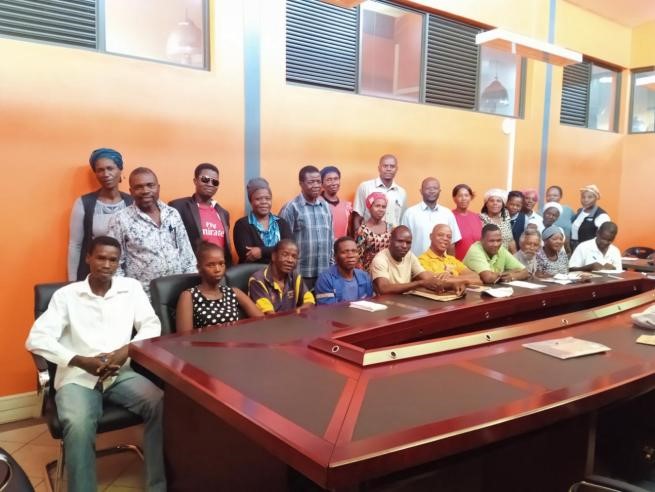By Nomonde Mafu
The climate crisis is intensifying gender inequality, but efforts are underway to combat this issue.
A growing number of women-led non-governmental organizations (NGOs) are tackling climate change, sustainability, and environmental challenges.
Tenvelo, an NGO founded by Ireen Ng’ambi, exemplifies women-led leadership in Eswatini, emerging from a vision to address the climate crisis and the entrenched inequalities it generates.
Established in 2018, Tenvelo has flourished as a sustainability NGO, collaborating with the Eswatini Environment Authority (EEA), the Ministry of Tourism and Environmental Affairs, and various international organizations.
RELATED: E2 Million Grant for Environmental Protection
The Eswatini Sunday had the chance to speak with Ng’ambi, and here’s what she shared:
What inspired the creation of Tenvelo?
Tenvelo was created to empower local farmers, communities, youth, and women to manage their environment through sustainable practices that combat hunger and enhance food security at the household level.
Who provided support during the process?
Since we began, we have received support from like-minded individuals and organizations, including the Eswatini National Trust Commission (ENTC), ReScope, CANGO, and the United Nations Development Programme (UNDP) through the Global Environment, as well as various government ministries. Tenvelo also enjoys engaging in fundraising activities.
What are Tenvelo’s core mandate and objectives?
Tenvelo is dedicated to environmental stewardship, with its primary focus on creating a sustainable environment through initiatives like reforestation, pasture management, reintroducing endangered plant species, and conservation efforts aimed at achieving a poverty-free society.
Currently, our focus has expanded to include:
- Environmental conservation
- Water, sanitation, and hygiene (WASH)
- Agriculture and food security
- Waste management
- Disaster risk management
- Cross-cutting issues
Our goals include promoting eco-friendly, sustainable practices in communities, encouraging local farmers to utilize organic products for environmental protection, and developing entrepreneurship skills as a means of poverty reduction while fostering gender equality and awareness.

We also work to cultivate a culture of social change through community participation, offering learning opportunities and skills development through leadership initiatives,
contributing to policy implementation for community development, and poverty alleviation through national and global entrepreneurship services, alongside training, coaching, and mentorship for marginalized groups.
What successes has Tenvelo achieved?
We have strengthened networks for information sharing, planted approximately 3,500 indigenous trees, which include medicinal and food plants, and established three nurseries in schools for plant propagation.
RELATED: Betting on Better Times: The Escalating Trend of Using Gambling to Uplift Lives
We take pride in having planted agroforestry fields and were honoured with the Temvelo Award for our ‘Communities Project.’
What main challenges has the NGO faced since its inception?
We have struggled with a lack of sustainable financial resources to maintain our activities, insufficient youth participation in environmental and agricultural efforts, a lack of volunteer spirit among young people, and limited operational space for our members.
What are Tenvelo’s future plans?
- Recruit more members to promote a greener environment
- Expand fundraising initiatives
- Establish and manage a demonstration site
Impactful Projects Implemented by Tenvelo
Tenvelo has successfully executed various projects that have significantly benefited communities across Eswatini:
- Strengthening the National Protected Area System of Eswatini (SNPAS) – 2020
- Objective: Plant 1,000 Indigenous trees and install rainwater reservoirs in Luzelweni and kaZulu.
- Partners: PELUM.
- Impact Area: Luzelweni and kaZulu, Manzini Region.
- Native Plant Reintroduction and Wetland Conservation – 2020
- Objective: Reintroduce threatened plant species, remove invasive alien plants (IAPs), and fence the wetland at Mahamba Gorge.
- Outcomes: Planted 420 Indigenous trees, removed IAPs and erected a 1.2 km fence around a 2,144 ha conservation area.
- Partners: GEF-funded and UNDP.
- Impact Area: Mahamba Gorge, Shiselweni Region.
- Increasing Resilience of Eswatini Farmers through Seed Sovereignty and Agro-ecology – 2020 to 2021
- Objective: Promote agroecology by distributing 4,400 vegetable seedlings, 44 kg of maize, and 44 kg of beans to 60 households.
- Partners: PELUM Eswatini.
- Impact Areas: Siphocosini, Motjane, Lugongolweni.
- Addressing Plastic Pollution through a Circular Economy – 2023
- Objective: Conduct hands-on training on waste collection and income generation through recycling.
- Partners: CANGO.
- Impact Area: Motjane.


